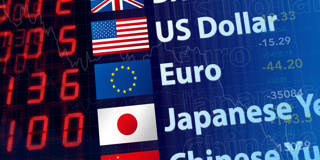 narvikk/Getty Images
narvikk/Getty Images
紧跟美联储
发自纽黑文—随着新型冠状病毒疫情使全球经济陷入衰退,寻求积极货币宽松政策的诱惑也日益增加。美联储已经将利率下压到近零水平,并承诺向经济注入数万亿美元。尽管德国宪法法院实施了一些抵抗,但欧洲央行依然加大了债券购买力度。而正如2008年金融危机后的宽松政策一样,此类政策将通过汇率波动来对全球造成长远影响。
自然灾害或疫情暴发这类重大经济冲击往往会推动受影响国家的货币升值。1995年日本发生神户大地震时,日元兑美元汇率就出现了升值,尽管不是很快。2011年3·11东日本大地震的影响更大,致使日元升值到了76日元:1美元的历史高点。
那是什么因素引发了灾后货币升值呢?这是因为汇率反映了世界市场对货币的相对需求。需求在某种程度上又取决于供应:如果在世界市场上美元资产比日元资产多得多,那么相对稀缺的日元将增加价值,同时对日元需求的增加也会加剧这一效应。
https://prosyn.org/8kogmf3zh
To continue reading, register now. It’s free!
Register Now
Already have an account?
Log in



发自纽黑文—随着新型冠状病毒疫情使全球经济陷入衰退,寻求积极货币宽松政策的诱惑也日益增加。美联储已经将利率下压到近零水平,并承诺向经济注入数万亿美元。尽管德国宪法法院实施了一些抵抗,但欧洲央行依然加大了债券购买力度。而正如2008年金融危机后的宽松政策一样,此类政策将通过汇率波动来对全球造成长远影响。
自然灾害或疫情暴发这类重大经济冲击往往会推动受影响国家的货币升值。1995年日本发生神户大地震时,日元兑美元汇率就出现了升值,尽管不是很快。2011年3·11东日本大地震的影响更大,致使日元升值到了76日元:1美元的历史高点。
那是什么因素引发了灾后货币升值呢?这是因为汇率反映了世界市场对货币的相对需求。需求在某种程度上又取决于供应:如果在世界市场上美元资产比日元资产多得多,那么相对稀缺的日元将增加价值,同时对日元需求的增加也会加剧这一效应。